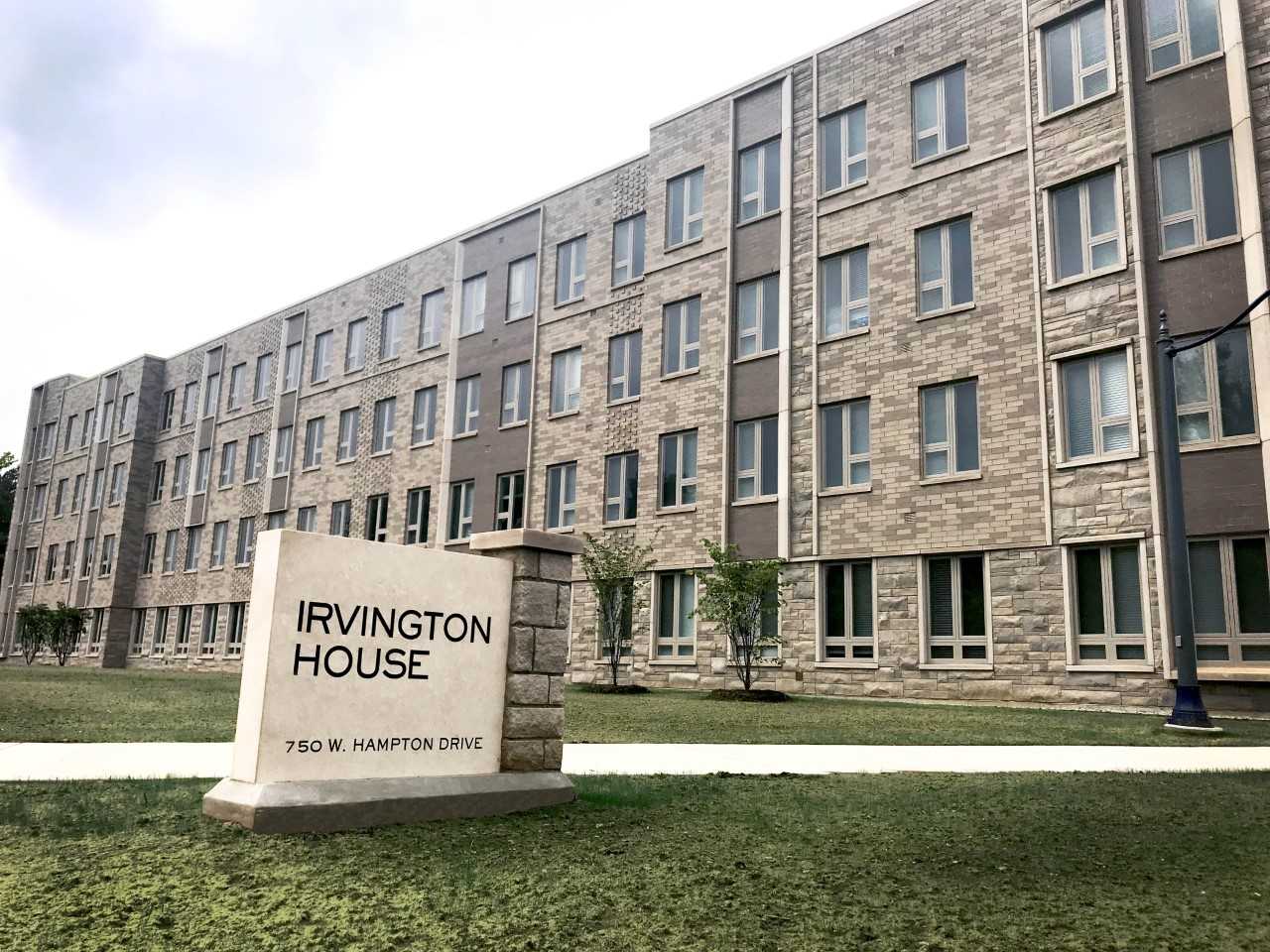Students will be required to pay for break housing. Collegian File Photo.
FRANCIE WILSON | STAFF REPORTER | fwilson@butler.edu
As of June 2019, Butler University has a new policy in place that requires some students to pay $25 a day to remain in on-campus housing over breaks. This includes those returning early for fraternity and sorority recruitment.
This policy change, however, will work on a case-by-case basis and does not include all students.
The students who are impacted are those who live in underclassmen dorms Irvington House, Residential College, Ross Hall and Fairview House. As in the past, if students plan on staying over breaks or for a portion of the break, it must be approved by their community director.
Students who live in on-campus apartments such as Apartment Village, University Terrace, South Campus Apartments and Butler Terrace have the option of staying on campus for no added cost. Students living in university apartments do not have to pay fees to stay over break because their contracts last for nine months, as compared to the academic year contract that is offered in the dorms.
Kathy Shellogg, the executive director of student living and learning, said this new policy will impact some students, but that each break stay request will be looked at individually.
The $25 will be used towards paying for heating, electricity and other costs of keeping a building running when students stay over breaks, as usually the dorms shut down.
“The whole goal is to offset some of those costs but also not to say ‘Hey we’re open all the time, come on you can stay here,’” Shellogg said. “Sometimes students out of convenience [may not] want to go to a home — home, whatever that might be — and that makes it hard on everyone.”
Shellogg said students that have academic or athletic requirements to be on campus will not be required to pay to stay over breaks.
“We want students who have to stay, to stay,” Shellogg said. “They have their home away from home here, if you will. You know there are some students that can’t absolutely go home, and we’re not going to charge them because they absolutely cannot.”
Since sorority and fraternity recruitment is considered optional, students returning early from winter break to participate in the recruitment process from Jan. 7-12 will be charged $25 per day to stay in the dorms.
Noelle Grabowski, a sophomore biology major, is a member of the Delta Delta Delta sorority and lives in Fairview House because her sorority house does not have enough room for all of the members. Grabowski has to return to campus several days before Jan. 7 to prepare to recruit new members with her sorority, so she’ll have to pay $30 for each day she stays in her Fairview room.
“I guess it’s like disappointing to hear, because I know in the past that wasn’t the case so it just makes it difficult,” Grabowski said. “We have to come back, and girls and guys who want to go through recruitment who are first-years, or are who doing it as sophomores also have to pay, which might deter some people from doing it if they know they’re gonna have to pay just to stay in housing that they already pay for.”
If necessary, the director of fraternity and sorority life, Panhellenic Council, Interfraternity Council and Shellogg will discuss students interested in recruitment but concerned about the daily cost of staying on campus.
Shellogg said the policy will not impact international students this year. She also said they are unsure of when the policy will be implemented for international students in the future, since traveling home for them means more than moving just a few states.
Bobbie Gibson, the associate director of international student services and incoming international exchanges, said she has heard of this policy, but the plan for next year has not been formalized nor communicated to her yet by Res Life.
“I do respect Res Life in that this is a decision that is certainly theirs to make, but I don’t agree with it,” Gibson said. “And the reason that I don’t agree with it is that international students are just not a couple states away — they’re not California, okay? They are [many times from a] whole continent away.”
Gibson said she understands why the policy is being put in place for domestic students. However, for international students she hopes the university will take different factors into account.
When the policy is implemented, Shellogg said cases with international students will be handled similarly to those of domestic students, meaning each student’s situation will be taken into account individually.
Instead of community directors deciding whether or not international students need to pay the fee, Shellogg said these decisions would go through Bobbie Gibson.
Unique situations will be looked at on a case to case basis.



